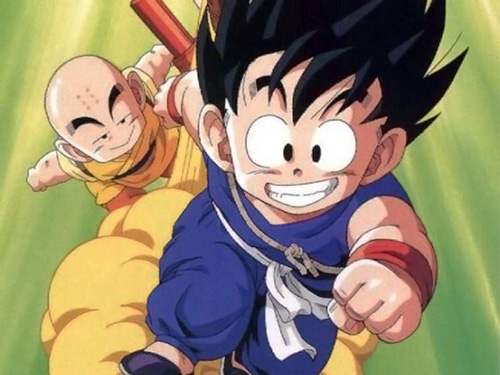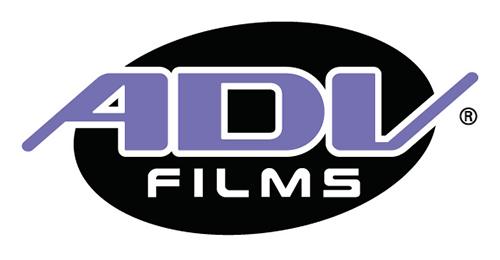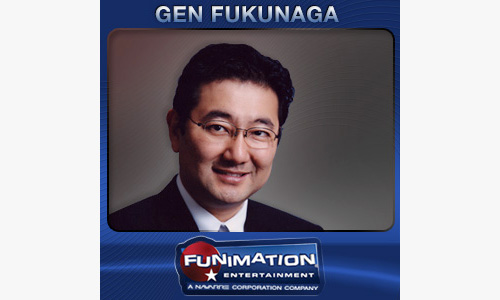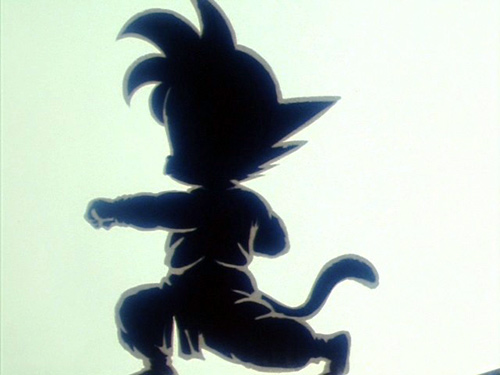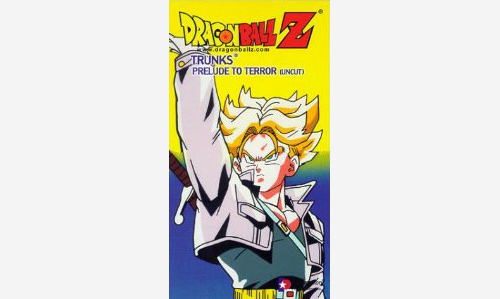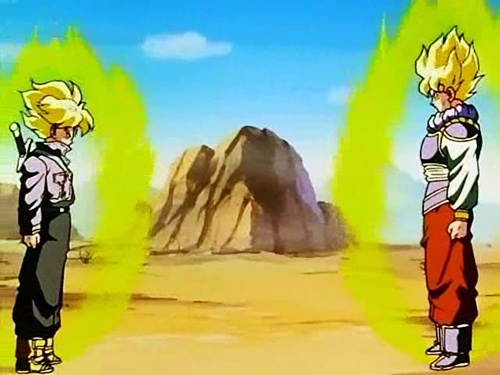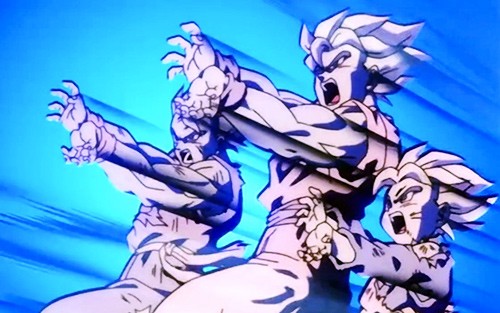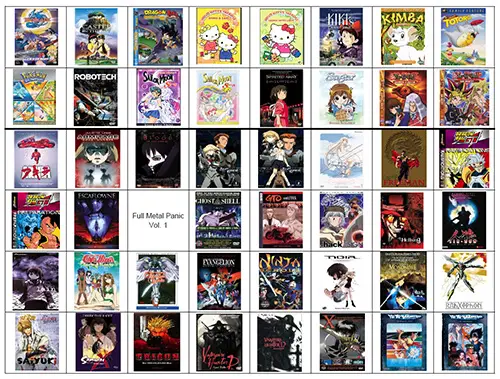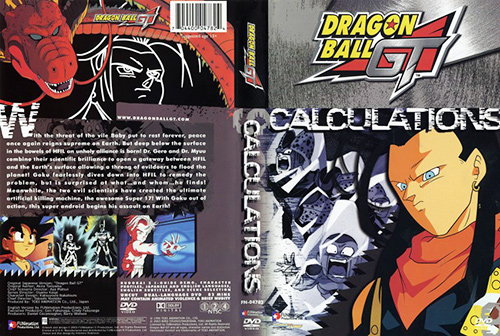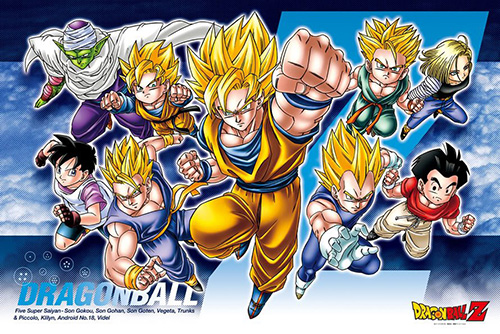Dragon Ball Sales Manager at FUNimation – Rick Villa Interview
Dragon Ball fans, you’re in for a treat today, because I recently interviewed Rick Villa, former National Sales Manager at FUNimation from 2002 to 2004 when Dragon Ball was at its peak in the United States.
Rick was responsible for selling Dragon Ball to stores across the nation and helped make FUNimation the success it is today. Without the sales team at FUNimation, Dragon Ball would not have been as successful as it was and FUNimation most likely wouldn’t be the powerhouse that they are today.
You’ll discover how Rick got the job at FUNimation, what it was like working with Gen Fukunaga and the other principle figures, and how the company was changed by Dragon Ball’s incredible popularity.
You’ll also gain the inside perspective of a FUNimation employee who was there during Dragon Ball’s golden years, as he fondly remembers the series that touched the lives of many.
Stepping into Anime at ADV
Derek: Hi, Rick. Thank you for taking the time to speak with me.
There are a lot of Dragon Ball fans who love the Dragon Ball series, but they don’t know the people who brought it to the stores so they could enjoy it. Can you tell us a bit about what it is you do, how you got into sales in the anime industry, and how you were hired at FUNimation?
Rick: My first job in anime was as a recording engineer for ADV Films. Their Production Manager was a good friend of mine and she recruited me in late 1998. At the time, she was looking for someone that could work alongside ADV’s Co-Founder and chief director, Matt Greenfield. I started there in February 1999 and was thrown right into the studio.
Matt had a purist mentality to Anime. He tried his best to keep the storylines as close to the original as possible. To be able to sit with him for as long as I did was an enormous learning experience. It gave me an appreciation for not only the art but also the creation aspect and all the things that went into localizing a product. I was very fortunate to have this opportunity, even if I didn’t exactly know it at the time.
One day while going over upcoming releases with ADV’s President & Founder, John Ledford, and his VP of Sales and Marketing, Craig O’Connor, we started discussing a Sonic The Hedgehog DVD. This was a huge property for them. Craig was briefing us on his in-store marketing ideas for the launch when I threw a few ideas out as well. Craig and John liked the initial ideas and asked me to put together a launch plan for my concepts. I relied heavily on my music industry experiences in Field Marketing to help me do this. I presented them with the plan a week later and John encouraged me to continue to work with Craig on the project.
Eventually John & Craig asked me to move permanently into sales and marketing and that is where I stayed until I left in 2001.
Looking back on it, I am really glad I made the decision to move into sales and marketing. Number 1, prior to becoming a recording engineer I was working with music groups in marketing so this move felt very natural. And number 2, I got to work with Craig and John on a daily basis and understand how they brought projects to market and as an added super bonus, I got to work with Carl Macek.
Derek: You wore a lot of hats.
Rick: Yes I did. Back then I was really trying hard to learn as much as I could about all the aspects of bringing a product to market. After 2 years with ADV, I decided to pursue other interests. I worked as a consultant for various entertainment companies, including Urban Vision.
Derek: Urban Vision is located in Los Angeles. Did you move there?
Rick: I did not, actually. Things are different now, but you have to think back to the way retail worked at that time. Blockbuster was a huge part of the industry at this time.
You could get some stuff, but not everything.
Blockbuster was based in Dallas,Texas.
Derek: I didn’t know that.
Rick: Yeah. A lot of retailers were based in Dallas so I relocated in late 2001.
Starting at FUNimation
Rick: After I got settled into Dallas I remembered that FUNimation was based here. I reached out to them as a consultant and was put in touch with Richard Ray.
Derek: I’ve heard that name before.
Rick: Richard Ray was the head of several divisions at FUNimation. Sales being one of them.
When I called in, I was transferred to Richard and within a week I gave up consulting and went to work with FUNimation.
Derek: Wow. Really?
Rick: It was one of those meetings.
Derek: Were they so impressed that they offered you the job on the spot?
Rick: I can’t speak for them, but I was impressed with what they had done. In the end, I believe it was great timing for both parties. Daniel Cocanougher, Co-Founder of FUNimation, and Richard Ray had just recently decided to bring in a dedicated sales person. Up to this point, Richard oversaw sales but felt that a dedicated person could do more.
FUNimation was a small place. It wasn’t like Xerox or Apple where there were assistants for everybody. We all had to do a lot of work. When I started there, Richard and I shared an office and became fast friends. We had a lot in common. Richard is very meticulous. He believes you if you say you’re going to do something. As long as you continue to honor your word, he will back you 100%.
Derek: What time period was this? 2002?
Rick: This was February 2002. I remember because I thought it was interesting that just 3 years prior I had started at ADV in the exact same month.
Derek: What was it like working at FUNimation at the time? You said it was a small company?
Rick: Definitely a small company in a lot of ways. We had our roles in well defined areas like a licensing department separate from the home video department, as well as a production department and then acquisitions. Well, really Gen Fukunaga [founder and CEO of FUNimation] was primarily focused on acquisitions. Gen was a master at recognizing a title’s potential.
Derek: You said that Gen Fukunaga was a master of acquisitions. Were you aware of Gen’s family connections with Toei, and how exactly he acquired the Dragon Ball license? I know he had an uncle that was a producer at Toei.
There are fans who question this. How did Gen Fukunaga get the biggest anime title of all time? He had very little experience, hadn’t proven himself, and here’s this guy in Texas who got Dragon Ball and is running with it, and the company is figuring it out as it goes, hiring local voice actors and trying to do their best. But it’s like, how did that even happen in the first place?
Rick: I am not sure about those details. FUNimation’s acquisition of Dragon Ball was before my time. I had heard Gen had a family connection and so on, but it’s not something I spent a lot of time on. Richard and Daniel put a lot of work on my plate the day I walked in.
Aside from the daily work launching titles, Richard and I started to strategize how we would develop their sales department, expanding channels needed to come first then, once that was rolling, we would build a sales team.
This was a period of heavy growth. Richard and I handled retail clients together for a short time then I started to handle the bulk of the visits. Richard kept an eye of things and would accompany me on the occasional trip. Working on Dragon Ball was a lot of work, but Richard and Daniel gave me a lot of encouragement and support.
Derek: Dragon Ball was the huge money maker, right? It was the biggest property at FUNimation at the time. Were you put in charge of Dragon Ball specifically, or was that one of the many properties you handled?
Rick: It was one of many. My department handled all home video sales, whether it be Blue Gender or the Dragon Ball franchise. We handled everything. When I first got there, we launched Blue Gender and we started prepping retailers for the launch of Yu Yu Hakusho. Dragon Ball Z was already on the shelf.
A few months later we began our relationship with 4Kids. We launched Yu-Gi-Oh, the Teenage Mutant Ninja Turtles and many others for them. Our department handled all of these home videos.
Derek: There were two things that FUNimation succeeded well at. Home video sales, and syndication on Cartoon Network. That syndication seemed to be the integral key that opened up the doors to all of the fans in America and made it so successful and popular. And then they would go to the stores and buy the home videos. Is that understanding correct?
Rick: Yeah, I think that is correct. But one thing to remember is that because of television, home video had to stay ahead in its releases.
Derek: Right, I remember going to Suncoast and buying the 3rd season of Dragon Ball Z before it aired on TV. Same thing with Garlic Jr. and Trunks.
Rick: Exactly. If you released it afterwards, what was the point? You had to be ahead of television. There was a distinct sales difference if I released a DVD after it had aired on TV.
Derek: Big drop in sales?
Rick: It was a noticeable drop. And again this was Richard Ray and Daniel Coconaugher saying, “Hey listen, we’re looking at data and this is what we’re seeing, so we’re making a change in how we do things.”
I don’t just mean that as a corporate standpoint. Sales existed because production produced something for us to sell. Production wouldn’t have anything to produce if licensing or acquisition hadn’t acquired it. We all existed because another department was doing something. That’s how the engine worked. It needed all the parts working together to be a success.
Derek: So it started with Gen Fukunaga acquiring the license, then it went through production and voice acting and mastering onto a tape or DVD, and then went to sales and distributing the product.
Rick: And then the licensing of that content beyond home video. Everything that was Dragon Ball Z had to be licensed in America.
There was a gentleman at the time named Bob Brennan who headed up the licensing division for FUNimation. He, like Fukunaga and Coconaugher, was a master at his craft.
Bob, like all the other department heads, had a tremendous team working under him. Bob was really good at finding good talent. One of his finds was Jeremy Snead. This guy was a licensing machine. He loved his work and it showed in everything he did. The Dragon Ball Z video game franchise can really be credited back to him and Bob. It always goes back to the fact that FUNimation wasn’t one person; it was all of us working as a team that made FUNimation and the Dragon Ball franchise a success.
Derek: That gives us a much better inside perspective. A lot of people don’t realize that there were so many people involved. Now did you have to work with Toei in Japan, or did someone else handle that communication?
Rick: That was handled almost exclusively through the licensing department. My dealings with the Japanese during that time were limited.
The Golden Years
Derek: What was the period of high volume sales like for you and your team? Did people realize that Dragon Ball Z (and the other FUNimation properties) were going to be this big and that the company was going to become a power house, or was it something that you figured out as you went along and it dawned on you one day that, “Wow, we’re making a big impact here.”?
Rick: The team at that time was still Richard and I. As I mentioned before, we were extremely busy. Luckily Daniel stepped in and gave Richard and me the green light to grow the department. However, this was easier said than done. I knew I needed someone that didn’t need to be trained and wouldn’t be intimidated by what Z represented.
Derek: What did Z represent?
Rick: Z was huge at the time. We knew just from a sales standpoint that it was an enormous property and we wanted someone who had seen this before. So rather than looking at other anime companies, we recruited Kraig Thompson from EMI Music. He had worked on launches for U2, The Rolling Stones, Coldplay, etc. Then Gen gave us a huge asset when he transferred Chad Bowers to our department.
Derek: Where was he transferred from?
Rick: From FUNimation’s toy division.
Derek: So that was a different division, you guys weren’t responsible for toys in any way?
Rick: No, only home video. Licensing and the toy division worked hand-in-hand though. This is what would have been regarded as IF Labs. Chad had come from that division and brought with him a wealth of experience and a sincere passion for all things FUNimation. He was quickly put in charge of our B2B website. He really delivered for us. He spent an enormous amount of time on the phone with Mom and Pop shops. He was on the front lines and he never backed down.
Derek: Why did they feel this way? What was so great about FUNimation at the time that made people want to work there?
Rick: Whenever things got stressful we used to joke around a lot and say “We have to remember that we sell cartoons.”
Also remember what time period it was. 9/11 was still very fresh in people’s minds, and we were deep into Iraq and Afghanistan. Several people had family and friends who were or were about to be deployed. None of us were doing that. We were selling cartoons. When you’re in a situation like that you have to remember not to take yourself too seriously.
Derek: Yeah. It sounds to me like you have a deep appreciation for your teammates, friends, and what you have been given in life. Not taking them for granted.
Rick: Very much so. Very much so.
Derek: I think that’s important to being a happy person.
Rick: I would agree.
Derek: If everybody at FUNimation shared a little bit of that, then I could understand why it’d be a good place to work.
Rick: Absolutely. I can’t speak for all the departments, but everybody I came into contact with, we all seemed to feel the same way, very grateful for where they were and what they were doing. In situations like that, you want to give somebody 100%.
Dragon Ball’s Prime
Derek: Can you give us an idea of how much a jump in market share and sales Dragon Ball received while you were there? $10 million in increased VHS and DVD revenues, for example. Did it become even more popular than it already was?
Rick: The short answer is yes. And yes, it was in the 10’s of millions. At the same time that’s not something I feel comfortable taking credit for. Yes it happened while I was there and was head of sales, but again it wasn’t a one man band. It takes all members of the band to play the song.
Derek: What were some of the strategic plans and goals you had? This was a foreign property. Anime was a strange bird in the 90’s and became more and more well understood and accepted into American society. Then it transformed, especially in the late 2000’s, into something that was viewed as, “Okay, this is just American culture,” even though it’s totally foreign. So there was something that occurred in the late 90’s and early 2000’s where anime became mainstream. I’d like to learn more about that. What were some things you did in order to make that happen?
Rick:
We really do have to remember that the retail environment was different than today. As well as remembering the level of bargaining [we had] in a store and with buyers, if you went into a Suncoast at that time, Dragon Ball Z had a dedicated section. Richard and Daniel really enjoyed this level of exposure and pushed me to see this concept thru in other retailers.
Derek: I remember. There were t-shirts, posters and even cardboard cutouts.
Rick: Exactly. And it wasn’t just Suncoast. During a meeting with our Target buyer we brought up the idea of creating an Anime section for him. The buyer really liked the idea especially since I mentioned brands from other anime companies. I approached it as an Anime consultant rather than just a FUNimation champion. This really paid off for the industry. The buyer gave me a timetable and I got to work. I brought in a former video buyer to help me create a full planogram (display model) in a way that the Target buyer would be familiar with.
This was crucial for selling the idea. He had to see the plan in his language, not ours. I included videos from ADV, Urban Vision, Tokyo Pop, Pioneer, etc. Daniel and Richard encouraged me to include the other companies and to position myself on the side of ALL anime companies, not just FUNimation. They saw this as a golden opportunity for FUNimation to be seen as an industry leader and not just another company. This always goes back to FUNimation’s confidence. They didn’t need to tear down people or companies. That is what set us apart. Seeing the section for the first time was awesome.
After this, I helped another major retailer out of Arkansas expand deeper into Anime. Again, I pushed them to diversify. All the things FUNimation had been doing with home video, licensing and TV lead to these opportunities. Without that exposure we wouldn’t have been accepted into mainstream retailers. American Anime fans always loved it. Everyone else was just playing catch up. This was also the transition period between DVD overtaking VHS.
Derek: In 2003, correct?
Rick: Yes. At this point, DVD sales were probably surpassing VHS, but DBZ VHS tapes were still consistently hitting high sales numbers.
Derek: I’m very fascinated by that. Can you tell me why that was?
Rick: Specifically why I don’t think I could ever say because I’m not sure if I’m the right person to answer it. But my belief has always been this.
When families adopt new technology, they typically pass down the old devices. In this scenario, parents got the new DVD players and kids got or kept the VHS players. I also think Z was one of those franchises that transcended age groups. I believe that’s what helped continue the VHS sales trend. Younger and younger groups of kids were getting involved with the franchise because of what they were seeing from older brothers and sisters.
Derek: So as new tapes were being released they wanted to continue to follow the series.
Rick: Exactly.
Derek: I have a statistic from a Nielsen Video Scan that showed that on July 20, 2003, the Dragon Ball GT DVD’s ranked #17 and #18 against all other DVD’s in the United States in release that week. While the VHS were #1 and #2. (Rick: Hahaha.) That’s incredible. That’s not just anime, that’s all DVD’s and VHS.
Rick: Haha. Yeah. It was Camelot.
Derek: If a new Dragon Ball series, or if Dragon Ball Z were released today for the first time, what type of sales projections would you give it? Do you think Dragon Ball Z would be as successful as it has been if it were released in today’s market?
Rick:
I know there’s a difference between the fans that began with the series and those that we had at the end. Obviously the number was much larger, but I do believe it would still be a success and the fans would still support it.
Dragon Ball Fans Support the Series
Rick: A lot of people get caught up in the whole phenomenon that was DBZ, or Dragon Ball, if you will, and its place in pop culture history. But there’s one huge aspect that people leave out a lot of times, and you hit on it. That’s the fans.
What was the phenomenon? Was it the franchise, or the fans’ appreciation of the franchise? That’s really what you need to look at. It wasn’t just a great piece of product or production. It was done really well, but the fans received it with such love and appreciation. Even fans that didn’t like the dub.
As I’m sure you know, there are enough negative comments that at times outweighed the positive comments with regards to how it was localized for the American audience.
Derek: Especially during that time period.
Rick: Yeah, exactly. In anime, regardless of whether it’s Urban Vision, ADV, FUNimation or even Illumitoon, there’s the purest level of anime fans, people who love it in its purest form without being localized. But even in those times [when the content was not aimed at those fans], Dragon Ball fans were always coming across as supporting the product.
They’re going to be there to watch the video, whether they have a negative comment or positive comment, they’re still going to support the product, buy it, watch it, give it its fair shake and then give their comment.
Derek: I agree.
Rick: There have been companies I’ve been with that do listen to the fans, but when it’s something negative they turn off. But you shouldn’t do that. You can’t dismiss them.
Derek: There were some Dragon Ball fans back then that said “FUNimation doesn’t care about us, look at what they’re doing. They’re changing the script, the music, the voices, they’re adding all these weird jokes, and they’re not staying true to the spirit.” As the years went by, FUNimation seemed to respond by releasing uncut VHS and DVD’s, subtitles with the Japanese audio track, and then they eventually got to the Dragon Boxes straight from Japan.
Now they have the Dragon Ball Kai Blu-Ray’s [aff], and they keep releasing Dragon Ball Z over and over again. Sales have gone down a bit, especially compared to 2002 and 2003, but fans keep supporting it, even though it’s the same product. I find that amazing.
Why do you think that the Dragon Ball franchise was so successful in America? Why did fans latch onto it and even become obsessed?
Rick: I wish I had the answer to that but I don’t. I am just happy it has earned its place in pop culture history.
Derek: What do you think of the Dragon Ball fan community? Is there anything you’d like to say to them?
Rick: A HUGE thank you. Everybody has probably said that before and I’m sure will continue to say that. I’ve never heard of anybody that has ever worked at FUNimation who wasn’t EXTREMELY grateful for the support of the fans.
Supporting One Another
Rick and the Sales team at FUNimation made a huge difference to the bottom line and really supported one another in their time of need. Likewise, the fans supported them and they listened to the fans. In the end, that’s what a business is all about.
It was nice to get an inside perspective on FUNimation after so many years of silence and unanswered questions. I really appreciate Rick’s candor and honesty in talking about what FUNimation was like in those formative years.
We spoke for a long time and it was an entertaining, informative and inspiring interview, so read Part 2 of my interview with Rick Villa!
Please sound off in the comments. What’s one new thing you just learned about FUNimation and the history of Dragon Ball?
' . $comment->comment_content . '
'; } } else { echo 'No comments found.'; }
